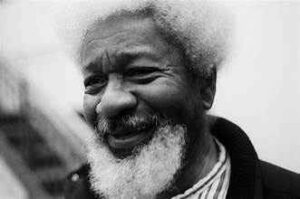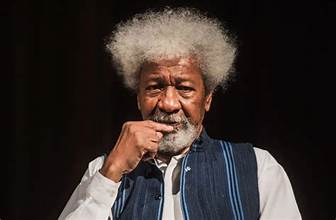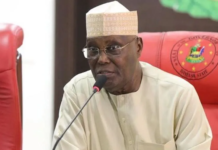Nobel Prize-winning playwright, Professor Wole Soyinka, has voiced his discontent with President Bola Tinubu’s recent national address, criticizing it for failing to confront the violent crackdown on protesters by security forces.
Reports indicate that a group of Nigerians organized a 10-day nationwide protest against what they described as poor governance, taking to the streets on Thursday to express their demands.
While the protests commenced peacefully, the situation escalated dramatically when unruly elements infiltrated the gatherings in various states, leading to destruction and looting.
On Saturday, police and other security agencies resorted to force—including tear gas and live ammunition—to disperse peaceful demonstrators in several locations, including the capital city, Abuja.
Despite police claims that seven individuals lost their lives during the protests, they asserted that none of these fatalities were caused by security personnel.
In a statement released on Sunday following Tinubu’s address, Soyinka expressed deep concern over the president’s failure to mention the shootings and deaths of protesters advocating for better governance.
The renowned Nigerian author, who has faced criticism for his perceived reluctance to challenge President Tinubu’s policies, condemned the use of live ammunition and tear gas by the Nigeria Police Force in response to civic protests, warning that such measures invariably lead to violence.
He remarked, “I set my alarm this morning to ensure I didn’t miss President Bola Tinubu’s highly anticipated address regarding the ongoing unrest across the nation.”
“His presentation of the government’s remedial actions since taking office, aimed at preventing such outbreaks, will certainly attract critical analysis for both effectiveness and content. My primary concern, unsurprisingly, is the ongoing decline in the state’s management of protests, an area where the presidential address fell notably short.”
“This neglect of civic needs unfortunately empowers security forces to act with impunity and traps the nation in an unending cycle of resentment and retaliation.”
“The use of live bullets as a response to civic protests is the fundamental issue. Even the application of tear gas raises questions in many scenarios, especially as an abuse during clearly peaceful demonstrations. Marches for basic needs are a universal signal of distress, not unique to Nigeria. They represent a clarion call to governance, indicating that a breaking point has been reached, serving as a litmus test for governmental awareness of public desperation.”
“The tragic reaction to the ongoing hunger protests in parts of the country, which had been forewarned, marks a regression that pushes the nation further back than the deadly conclusion of the pivotal ENDSARS protests.”
“It evokes colonial-era disdain, reminiscent of the pioneering work of Hubert Ogunde in his folk opera BREAD AND BULLETS, which faced suppression by the colonial authorities.”
Soyinka emphasized that “the nation’s security forces cannot feign ignorance of alternative models to follow, demonstrating civilized methods of security intervention.”

He continued, “Do we need to recall the widespread protests known as the YELLOW VEST movement in France in 2022/23? Perhaps it’s time to make such instances mandatory viewing for police training. In all the footage I observed, I did not see a single gun pointed at protesters, let alone fired at them during physical confrontations.”
“The deployment of bullets in response to pleas for bread is a troubling regression, signaling the potential for far more desperate upheavals, including revolutions.”
“It is high time to permanently abandon the outdated reliance on lethal force by security agencies. No nation is so underdeveloped, materially impoverished, or internally insecure that it cannot demonstrate the will to set a positive example. It simply requires recalling its own history and committing to a lasting transformation that breaks the cycle of violent responses to civil society.”




